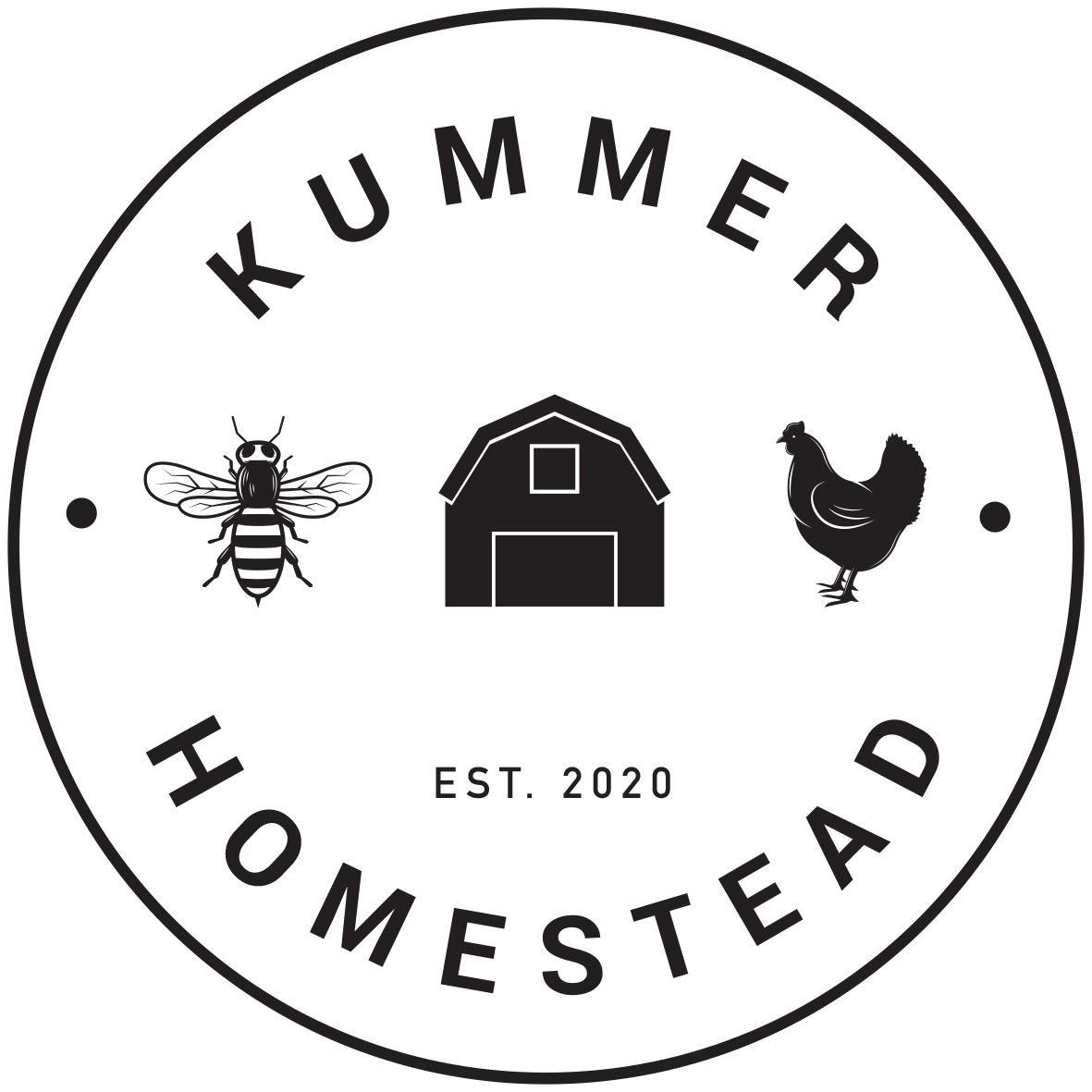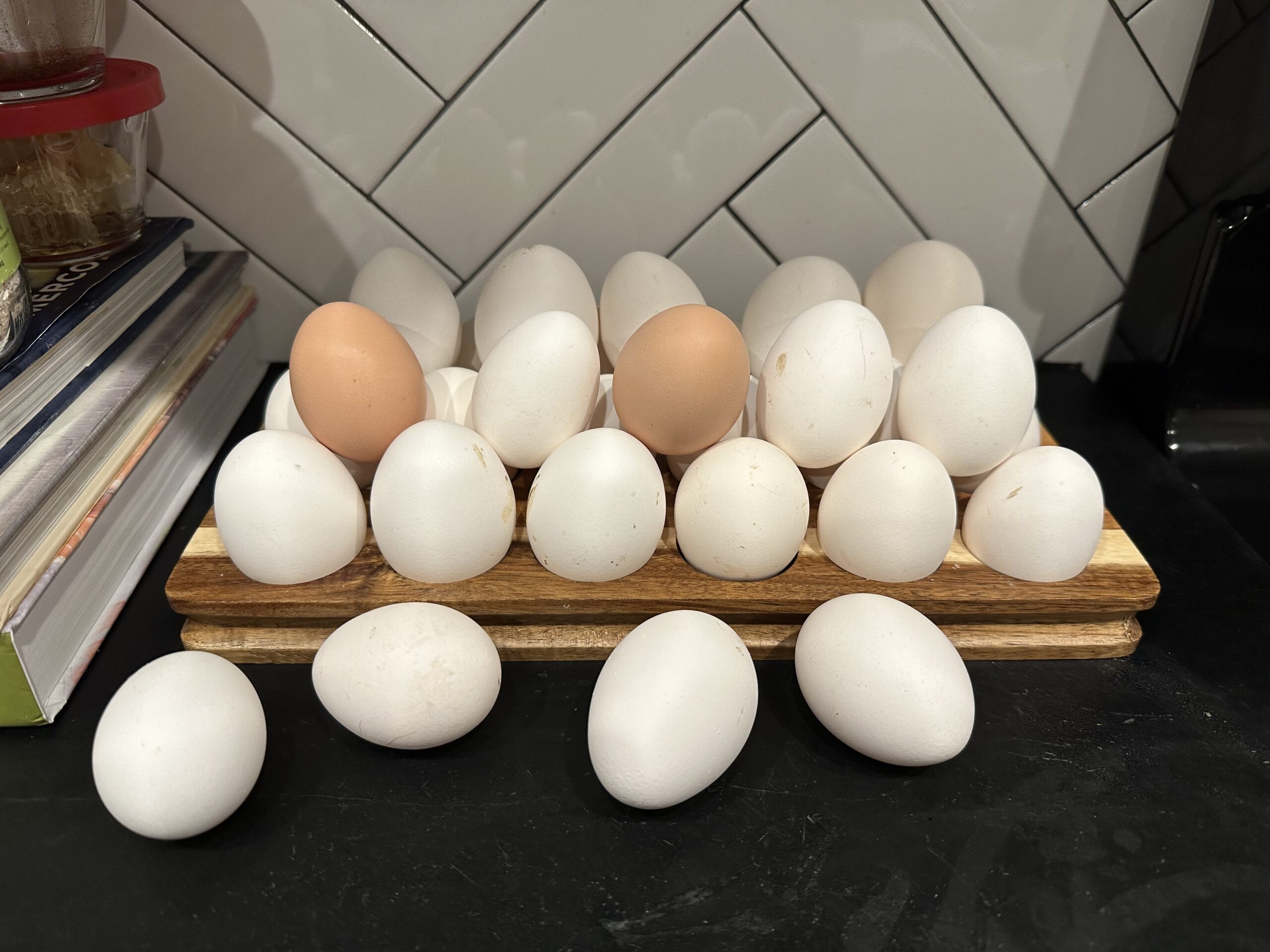While not in the egg-selling business, our hens often lay more eggs than we can use. When that happens, we sell the surplus on a first-come, first-served basis.
We charge $9 per dozen or $8.50 per dozen if you buy two dozen or more. Our homestead is located five minutes from downtown Crabapple on Freemanville Road, near Milton High School.
If you live in the Milton/Alpharetta area and want to be notified when we have fresh eggs for sale, please enter your email address in the form below.
Frequently Asked Questions
Our eggs will stay fresh for two to four weeks at room temperature (if you don’t wash them) or in the fridge.
You don’t have to refrigerate our eggs as long as you don’t wash them.
Eggs have a natural coating that protects the inside from dirt and pathogens. When you wash the eggs, you remove the protective coating, requiring refrigeration and increasing the likelihood of pathogens entering the egg.
The color of the egg yolk is determined by the plant pigments the hens consume. So, depending on what each individual hen ate, the color of the yolk can vary. However, the yolk color doesn’t indicate nutritional value. You can expect darker yolks in summer when more plants grow than in winter.
We raise our hens in a combination of pastured and wooded areas (chickens are descendants of jungle fowl, after all) where they can forage for insects, grubs, worms, and plant-based food sources (e.g., clover).
Our supplemental feed is certified organic, non-GMO, and doesn’t contain soy or corn. Additionally, our feed has olive oil instead of vegetable oil (which is high in inflammatory polyunsaturated fatty acids). Additionally, we feed our hens kitchen scraps, mealworms, meat, organs, organic kelp, egg shells, oyster shells and grit.
The main reason our eggs cost more than those from the store is the type and quality of feed we use. In fact, even the best eggs you can find in stores (and at most other farms) are from chickens that were fed a diet high in polyunsaturated fatty acids (PUFAs), which increases the fatty acid profile in the meat of the birds and the eggs.
PUFAs are highly inflammatory, and we do everything possible to reduce the PUFA content in our feed. Unfortunately, organic, non-GMO, corn/soy-free, low-PUFA feed is expensive, increasing the eggs’ price. However, by going the extra mile, we can produce the healthiest eggs possible, and we think it’s worth it.
You can learn more about the nutrient profile of different types of eggs in this article about free-range vs. pasture-raised eggs.

